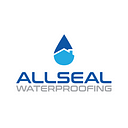Detecting and Fixing Swimming Pool Leaks: Expert Tips and Techniques
2 min readJun 27, 2024
Detecting Pool Leaks
1. Conduct a Visual Inspection
- Check for Visible Signs: Look for wet spots, cracks, or areas where the ground is settling around the pool.
- Inspect Pool Equipment: Examine the pump, filter, and plumbing for any signs of water leakage.
- Monitor Water Level: Regularly monitor the pool water level to identify any abnormal or rapid drops.
2. Perform a Bucket Test
- Bucket Test Method: Fill a bucket with pool water and place it on the pool step. Mark the water levels inside the bucket and on the pool edge. Compare the evaporation rate of the pool water versus the bucket water to determine if there is excessive water loss, indicating a leak.
3. Use Dye Testing
- Dye Method: Add food coloring or leak detection dye to suspected areas (like cracks or around fittings). Observe if the dye is drawn into the crack or area, indicating a leak.
4. Pressure Testing
- Pressure Test Plumbing: Use a pressure gauge to test the pressure in the plumbing lines. A drop in pressure indicates a leak somewhere in the plumbing system.
Fixing Pool Leaks
1. Surface Repairs
- Vinyl Pools: Patch tears or holes in the vinyl liner using a vinyl patch kit.
- Concrete Pools: Seal cracks with underwater epoxy or hydraulic cement designed for pools.
- Fiberglass Pools: Repair surface cracks or damage using a fiberglass repair kit.
2. Plumbing Repairs
- Inspect Pipes and Fittings: Tighten loose fittings or replace worn-out seals and gaskets.
- Use Sealants: Apply underwater sealants or epoxy putty to repair leaks in pipes or fittings.
3. Skimmer and Return Line Repairs
- Replace Gaskets: Replace worn-out skimmer or return line gaskets to prevent leaks around these areas.
- Check Valves: Inspect and replace faulty check valves to prevent water from flowing back into the pool.
4. Professional Assistance
- Leak Detection Services: Consider hiring professional leak detection specialists equipped with advanced tools such as pressure testing equipment and acoustic listening devices.
- Repair Services: Engage professional pool repair services for complex leaks or those requiring specialized equipment.
Preventive Maintenance Tips
- Regular Inspections: Conduct routine inspections of your pool’s components, including the liner, plumbing, and fittings.
- Maintain Water Chemistry: Properly balance pool water chemistry to prevent corrosion and deterioration of pool materials.
- Address Issues Promptly: Promptly repair any detected leaks to prevent further damage and maintain pool efficiency.
Detecting and fixing swimming pool leaks requires a systematic approach involving visual inspections, testing methods, and appropriate repair techniques. By following these expert tips and techniques, you can effectively identify leaks early and implement the necessary repairs to keep your swimming pool in excellent condition. Whether you choose to perform DIY repairs or seek professional assistance, addressing pool leaks promptly is essential for preserving the longevity and enjoyment of your pool.
